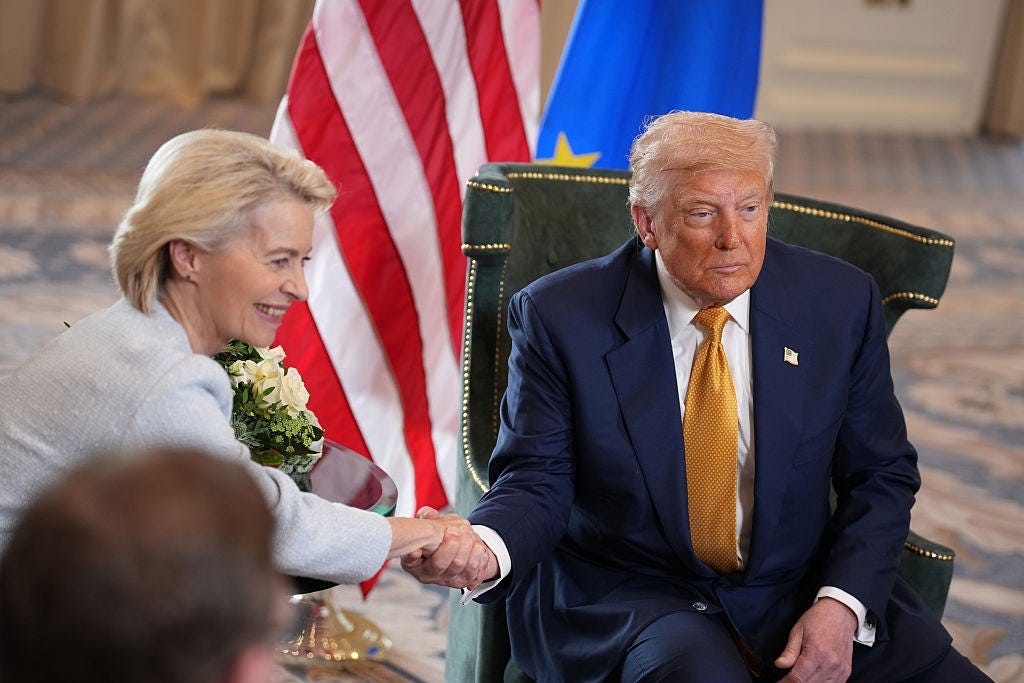The EU Trade Deal: Are You Tired of Winning Yet?
Trump scores the biggest trade deal of them all, fresh off huge wins with China and Japan, plus NATO's commitment to a 250% defense spending increase.
This essay is free, but with Premium Membership you get MORE, like this essay from former National Security Council Chief of Staff Fred Fleitz. Join today.
by Rod D. Martin
July 28, 2025
Are you tired of winning yet? Clearly President Trump isn’t.
Yesterday, the President clinched a supposedly impossible trade deal with the European Union. And the terms are pretty extraordinary.
Previously, Europe has charged America four times the tariff on autos that we charged them. They have long blocked most sales of farm goods. And since the start of the war, they have sent twice as much money to Moscow for energy as to Kiev for military aid, effectively subsidizing the Russian war machine while failing to purchase that energy from Texas and Louisiana, an obviously more secure and more mutually supportive option.
These are allies?
Trump just changed all of that. There will now be a flat 15% tariff in both directions on most goods. Europe’s markets will now be almost as open to the U.S. as ours are to t…





